Child Safety Week – Essential primary resources for 2025
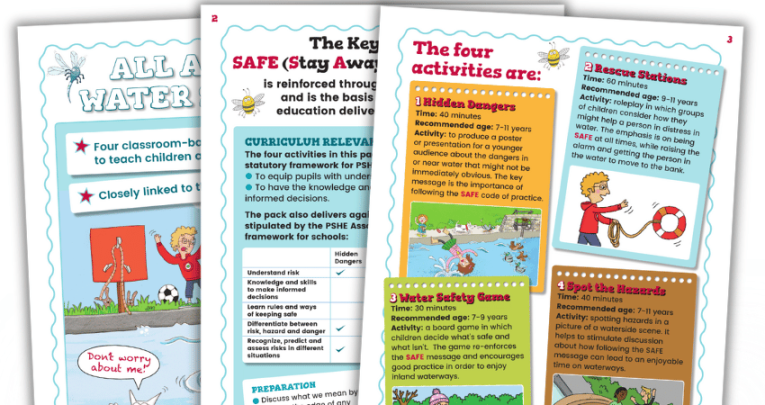
Help kids stay safe with activities, guides and educational posters for all sorts of accidents and hazards in home and at school…

- by Teachwire
- Classroom expertise and free resources for teachers
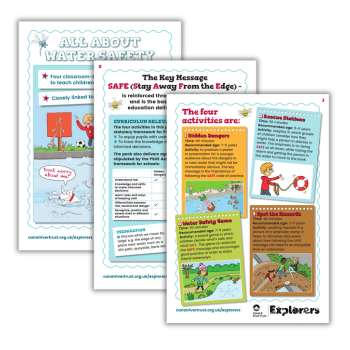
Explore our guide to the best Child Safety Week resources and give your pupils the knowledge and skills they need to recognise risk and stay safe…
What is Child Safety Week?
Child Safety Week is run by Child Accident Prevention Trust. It aims to raise awareness of the risks of child accidents and how they can be prevented.
The aim of Child Safety Week is to reach as many families as possible with important safety advice. This year’s theme is “Safety is for sharing”.
When is Child Safety Week 2025?
Child Safety Week 2025 runs from Monday 2nd to Sunday 8th June.
Child Safety Week resources
Official Child Safety Week resources
The Child Accident Prevention Trust has lots of free resources on its website for Child Safety Week. This includes fact sheets, session plans, activity sheets, videos and social media assets.
Internet safety
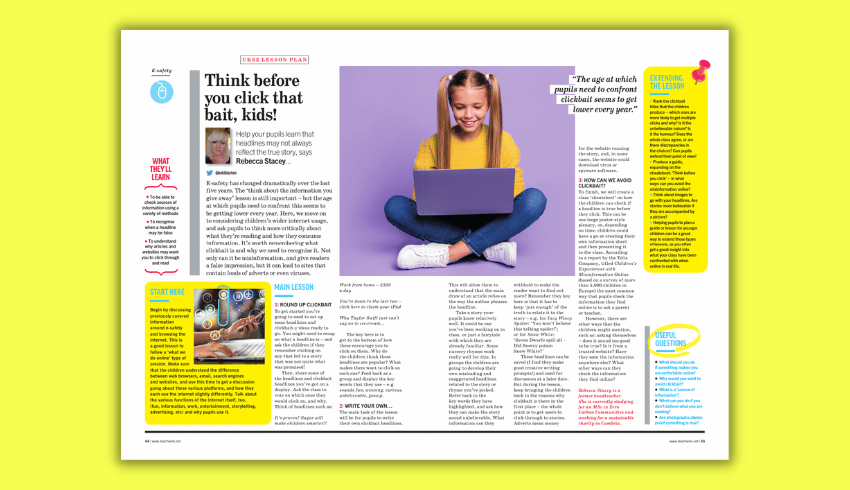
A crucial element of child safety these days is making sure young people are not exposed to harm online. Check out our Safer Internet Day round-up for lots of great resource suggestions, including this free clickbait lesson for UKS2.
Water safety
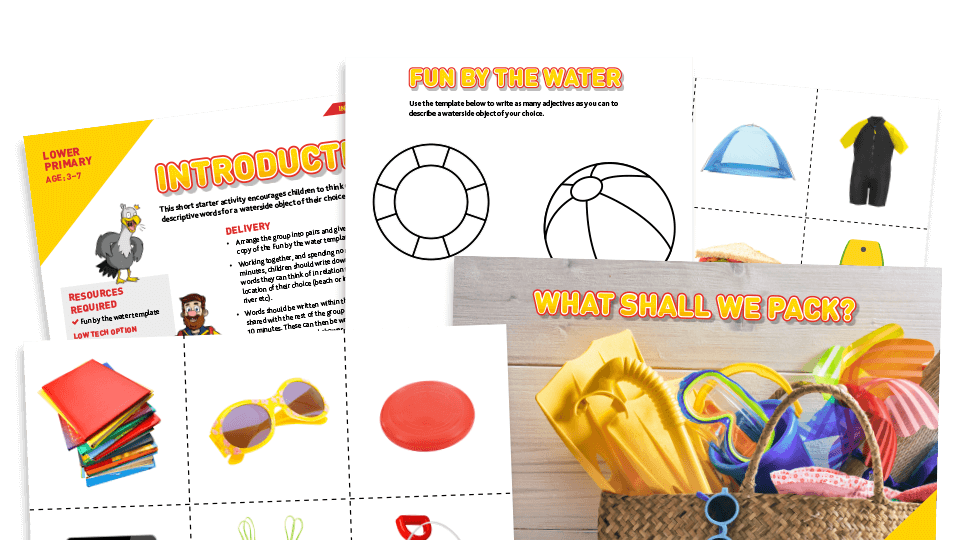
Teach children in Year 1 and Year 2 about staying safe by the water, and in the sun, with this free active learning resources bundle from the RNLI.
One activity enables children to consider what important things they might need for a day by the water. The other encourages them to come up with descriptive words for various waterside objects.
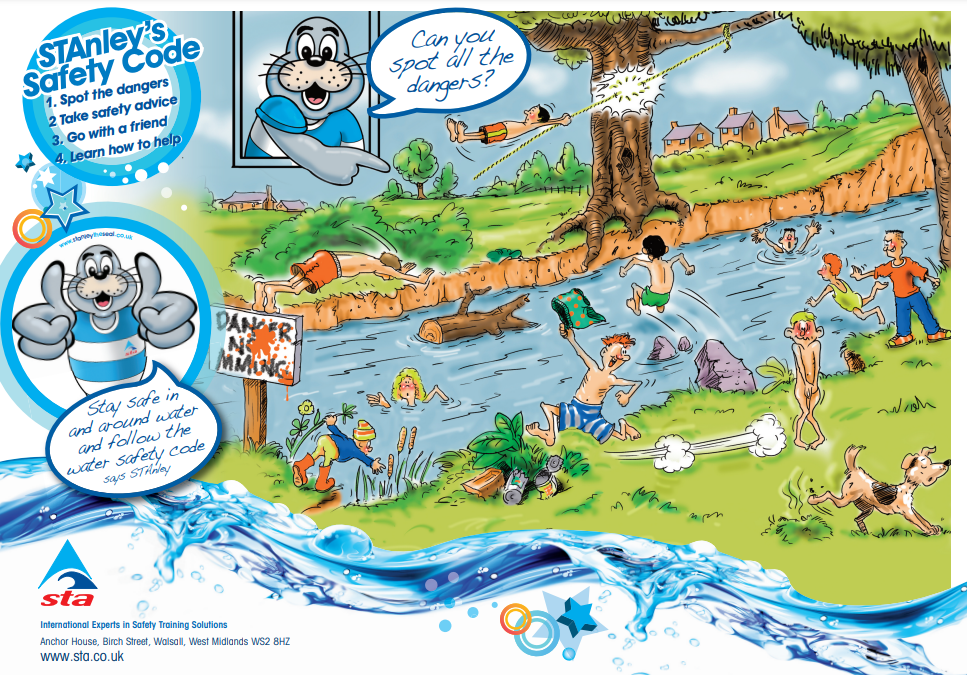
We also have this free resource for KS1. Can pupils help Stanley the Seal find ten potential water safety dangers in this illustration of a busy riverbank?
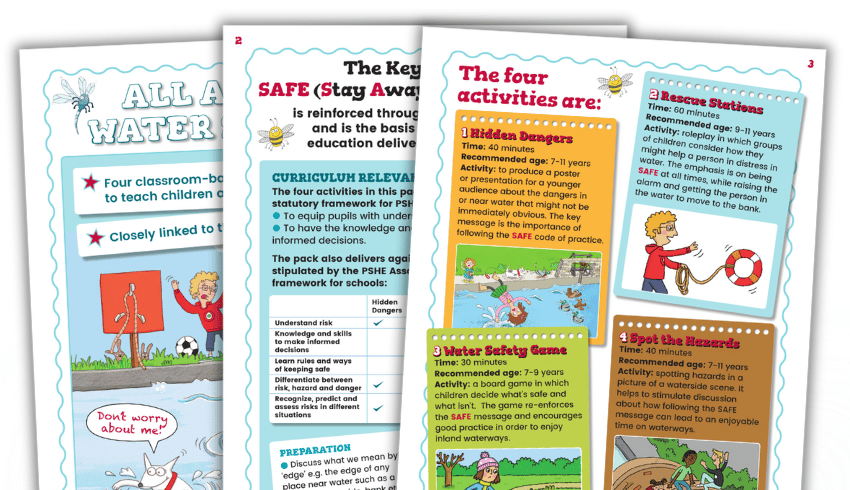
For KS2, try this free PDF pack from The Canal & River Trust, containing four classroom-based activities designed to teach water safety.
On the road
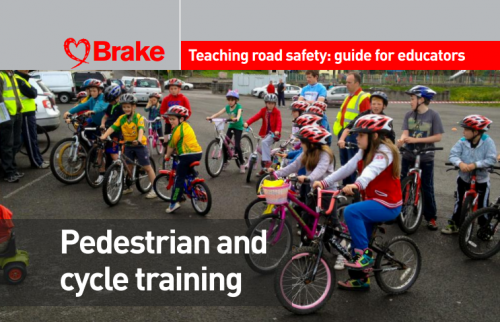
Road safety is something that all children need to know about, especially those who walk or ride to school. We’ve put together a round-up of all the best Road Safety Week resources for you to browse.
The charity Brake has an excellent set of resources for teachers, covering Early Years to Key Stage 4.
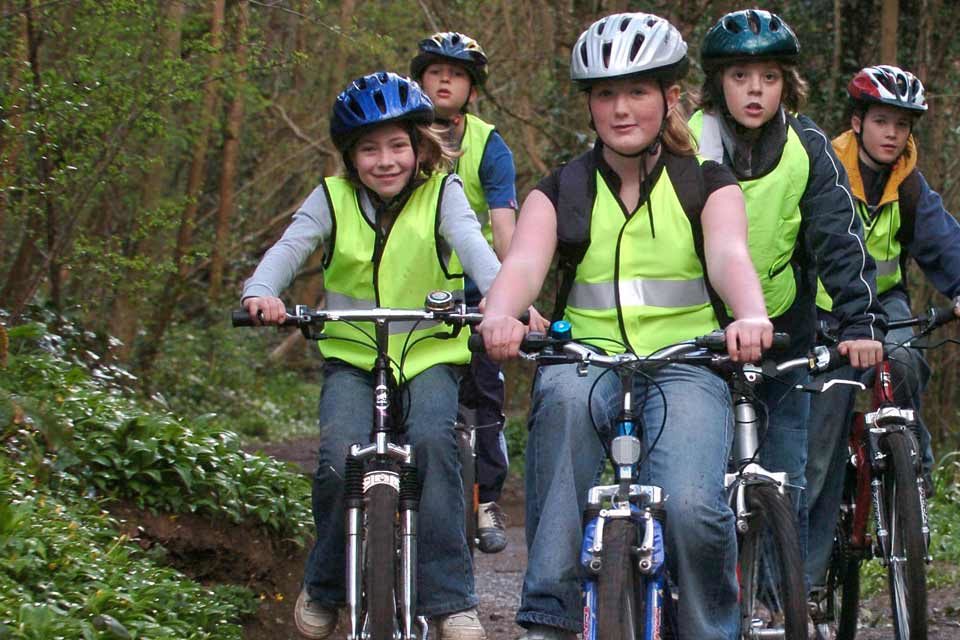
You can also find a selection of excellent road safety resources on the THINK! website. There are sections for ages 3-6, 7-12 and 13-16, with lesson plans, documents, slides, films and games for you and your students.
Playground safety
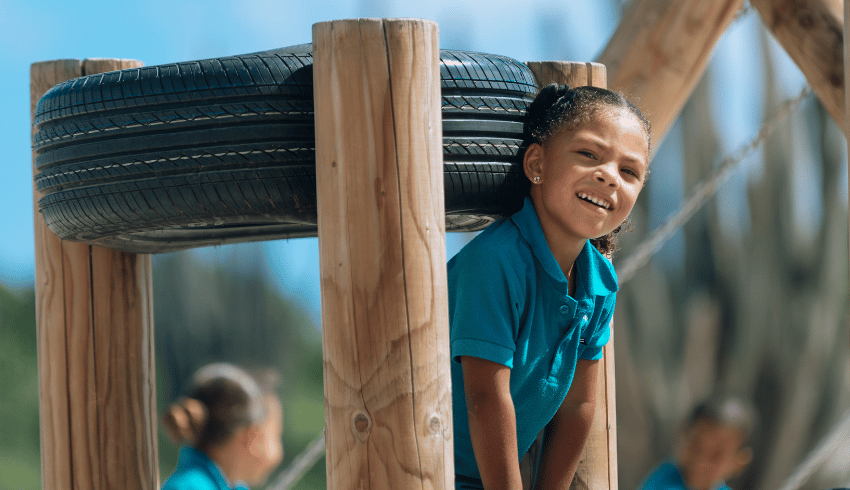
ROSPA, or the Royal Society for the Prevention of Accidents, has a massive bank of advice on all things related to playground safety.
It covers everything from risk assessment and legal aspects to ball pool cleaning and skateboarding safety.
Heat check
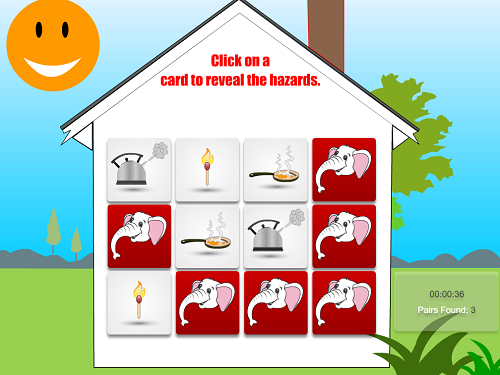
Most young children will know not to go near fire. However, not every burn hazard is as obvious as a flame. The Children’s Burns Trust can help, with a range of resources for various age groups. (Of course, some of the resources for older children will have images of injuries that might be distressing, so do check them out beforehand.)
For KS1 you’ll find a free PDF book called Bernie Bear and the Bad Idea about the dangers of playing with lighters and matches. There’s also a firework safety poster, a ‘play safe’ worksheet and more.
Sun safety
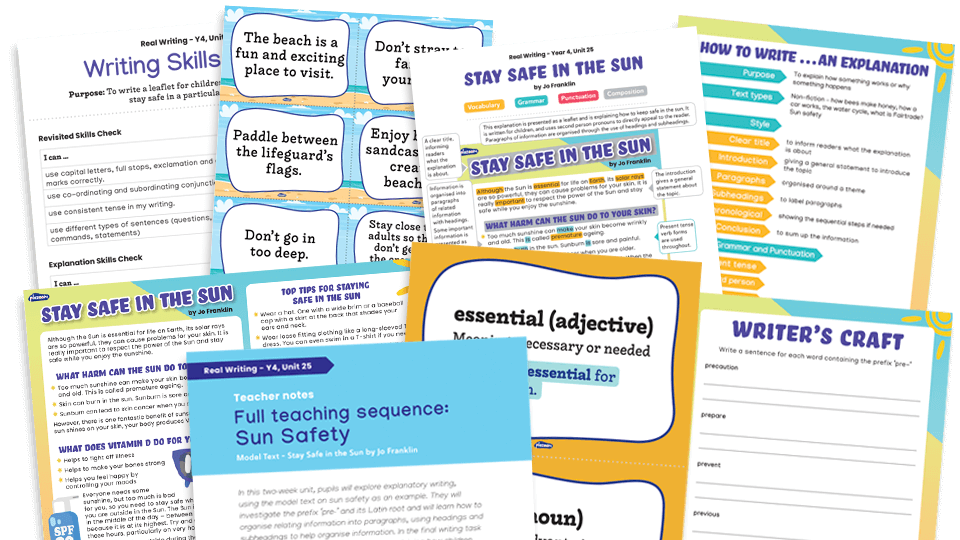
Teaching children how to keep themselves safe from the sun is especially important. This writing unit for Year 4 from literacy resources website Plazoom is built around an original model text advising children about sun safety.
In their final writing task, pupils will write their own leaflet, explaining how people can stay safe on the beach, in the kitchen or other situations and places.
Country living
The Health and Safety Executive for Northern Ireland (HSENI) has produced an in-depth guide to staying safe around animals, machinery and natural elements – useful if you teach in a rural area.
There are videos to watch plus an introductory child farm safety activity pack, and resources for KS1, KS2 and parents.
Home security
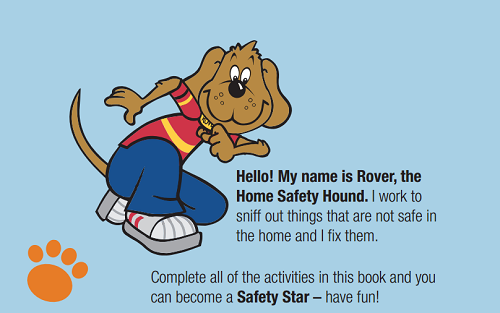
Of course, educating children about safety doesn’t stop in the classroom. They need to be able to take this advice home with them too. Thankfully, Safe Kids has produced tip sheets on batteries, toys and medication.
Keep learners safe while teaching them how to look after themselves
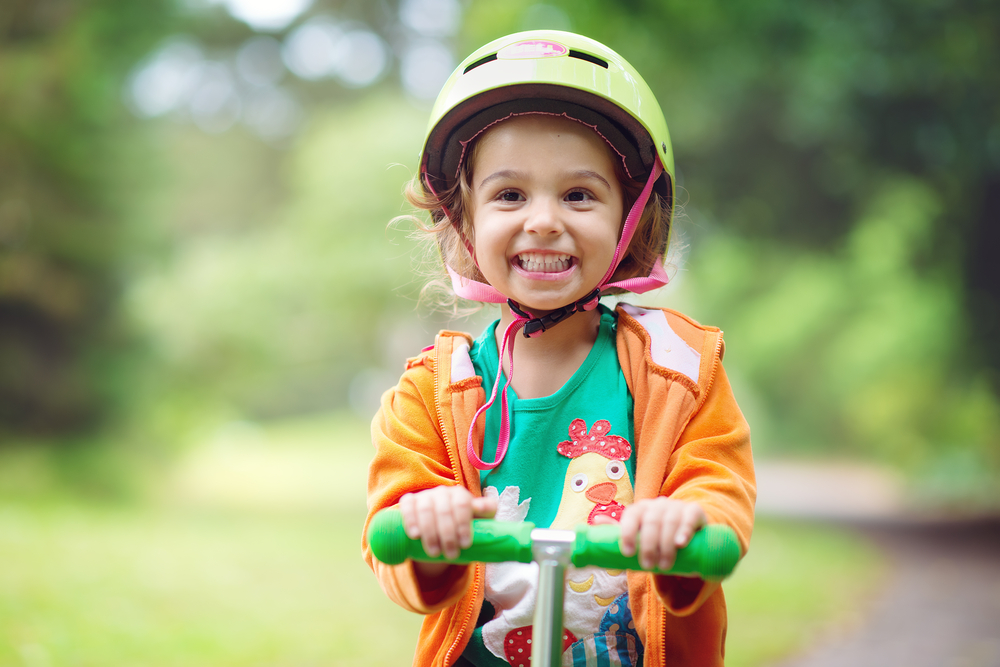
We have a responsibility for keeping our learning environments safe, says Maxine Lock. However, it’s worth remembering that children can learn a great deal from ‘risky play’…
Working with young children can be fun, stimulating and rewarding. It’s also a work environment where you are responsible for those in your care, and for maintaining a healthy and safe environment in which children can play and develop without coming to undue harm.
However, within this environment, children also need to learn to cope with risks and challenges that they will eventually face alone. They need to be equipped with the tools and skills that will help them to make ‘good’ decisions.
The value of ‘risky play’
In our quest to protect children, it’s easy to place too great an emphasis on our health and safety requirements. This can, in turn, lead us to create dull and unstimulating environments.
Paradoxically, this kind of ‘over-protection’ can actually have the opposite of the desired effect, cultivating in children a lack of understanding of their own limits, and how to keep themselves safe.
Children learn through play, by exploring their environments, testing out ideas and by challenging themselves. It’s therefore important to recognise the value of ‘risky’ play, and the immense benefits that this can bring in preparation for later life.
Case study
Let’s look, for example, at three-year-old Charlie, who has just started using the balance bike in the outdoor space. He begins by using a ‘walking’ movement, carefully and slowly.
Then, as he gets used to the motion, he starts to push off more and lift his feet off the ground. He feels the bike tip to the left, and quickly places his left foot back onto the floor to stop himself from falling off.
Gradually, he grows in confidence and increases the speed. Before long, he’s weaving in and out of the other children. There are four children using this area using bikes, scooters and ride-on toys.
They look out for each other as they move about and negotiate the use of the space. A member of staff watches from the sidelines, ready to intervene if there are any ‘speeding offences’.
Charlie has learnt how to balance on the bike and move himself forwards. He is developing his awareness of where he is in relation to others, makes judgements on speed and anticipates where the other children are going to go next.
Sometimes he might get it wrong – there might be a collision and some damage, but nothing that can’t be fixed. He will learn from the experience.
Managing risks
The above is an example of how to balance the risk of taking part in an activity, with the learning and development opportunities that the same activity can provide.
Charlie’s rides on the balance bike are contributing to his learning and development in many ways now, but crucially, may also be of benefit once he’s older and riding a bike on the roads, where he’ll need to be aware of traffic and have to judge speed and distance.
So how can health, safety and risk be managed effectively in an early years setting? The legal requirements for safeguarding and welfare in early years settings are contained within the Childcare Act 2006 and set out by the EYFS statutory framework.
This states that providers must “take all necessary steps to keep children safe and well”. Practitioners also have a ‘duty of care’, which means that they must avoid undue negligence that could lead to harm being caused to others.
Staying safe
Both RoSPA and the Child Accident Prevention Trust (CAPT) identify accidental injury as one of the biggest killers of children in the UK, second only to cancer.
Keeping children safe from accidental injury, however, is not simply about avoidance of all risk and hazards.
Babies and younger children are vulnerable, and therefore require greater protection by the adults around them. But as children grow older, they need to develop a healthy understanding of what might harm them and how to keep themselves safe.
As the EYFS statutory framework puts it, safeguarding and welfare requirements are designed to “help providers create high-quality settings which are welcoming, safe and stimulating, and where children are able to enjoy learning and grow in confidence.”
Within those requirements are areas where there’s a clear and absolute need for practitioners and settings to work to keep a child safe, such as ensuring that all staff have had a Disclosure and Barring check.
There are also areas where practitioners have a responsibility to help children learn how to keep themselves safe, such as learning how to cross the road.
Finally, there are areas where practitioners must provide an environment that enables children to keep themselves safe and healthy, such as through providing accessible hand-washing facilities.
It’s up to you
Your role as an early years practitioner is to support the children to be safe and healthy by:
- Understanding the legal requirements with regards to health and safety
- Developing skills in understanding and identifying risks and hazards
- Managing risks to both protect the children and support their learning and development
Section 1.6 of the EYFS statutory framework states that practitioners must “consider the individual needs, interests and stage of development of each child in their care, and must use this information to plan a challenging and enjoyable experience for each child in all of the areas of learning and development.”
Work to develop your confidence, and help the children to develop theirs. In the words of Fiona Danks and Jo Schofield, the authors of Nature’s Playground, “Life is full of risk, so the best way to prepare children for life is to ensure they know how to judge risk for themselves.”
Finding the balance
Five ways to manage health and safety requirements while supporting children’s learning…
Child protection Think about how you help children to understand about keeping themselves safe, who to turn to if they want to talk, the NSPCC’s ‘underwear’ rule?
Suitable people Safe recruitment processes, including all staff having a DBS check, protects the children in your setting. How do you teach children about stranger danger?
Staff An understanding of both child development and risk management can support staff to feel more comfortable in the planning and provision of ‘risky play’
Health Ensure adequate paediatric first aid provision for any accident or injury that may occur; make sure that staff can manage behaviour to avoid injury to the child and others
Safe environment Ensure that the premises are maintained and that all hazards are identified and made safe by conducting a risk assessment. A poorly maintained climbing frame, for example, would not be a safe environment for a child to test out their climbing abilities!










